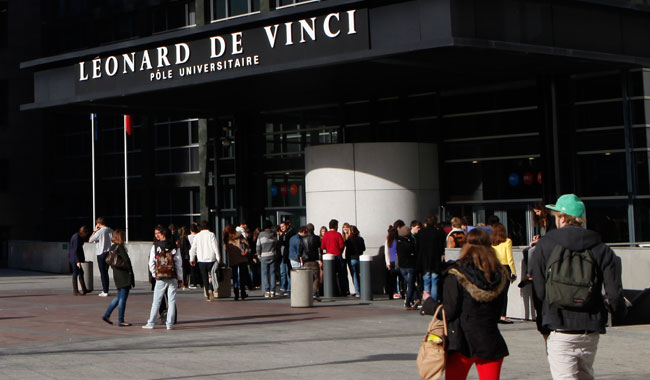Parisian Engineering School Will Certify Diplomas on the Blockchain

The Leonardo da Vinci Engineering School (ESILV), a renowned academic institution in Paris, France will start certifying and issuing diplomas using Bitcoin’s blockchain, as early as April 2016.
The École Supérieure d’Ingénieurs Léonard de Vinci, a top engineering school in France will soon be issuing diplomas certified by the blockchain. In doing so, the institution will be the first French school to certify diplomas on the blockchain.
While the announcement isn’t official yet, French publication Blockchain France revealed that the school is partnering with French bitcoin startup Paymium for the new milestone. The new endeavor is seen as a solution to authenticate diplomas and keep them away from counterfeiting.
Cyril Grunspan, educational director of Financial Engineering and Mathematics, one of the four primary departments of the school told the publication:
There isn’t much to do; the technology is there and the rest is a question of will from the schools. It is simply a use of the blockchain for certification, since it is easy to fake certificates with Photoshop these days.
Bitcoin and Blockchain Academia
ESILV has made strides in embracing Bitcoin and blockchain technology previously. In September 2015, the school announced a new course on Bitcoin, an endeavor which is also the first of its kind in any level of the French educational system.
The University’s Financial Engineering department along with the IT department will also be offering a Fintech programme that students can opt to choose. Starting in September 2016, the Fintech programme will cover courses on security and network that includes cryptography, payment systems, blockchain, web development and the history of currency from mint to current day cryptocurrencies such as bitcoin.
The programme will also encourage students to develop real projects in a six-month period.
Grunspan added:
With the opening of the ‘Fintech’ [programme], bitcoin- and blockchain- related projects will develop. We want students to work on practical, real-world needs with startups {using} bitcoin blockchain.
Furthermore, he revealed that management has yet to decide if the school will develop its own tools and applications with the blockchain or use established platforms.
“I think the easiest way would be a link to blockchain.info,” says Grunspan, noting that potential employers could access the school’s website to verify the diploma. The school will also issue diplomas through paper, alongside certifying them on the blockchain.
The ESILV follows the lead of San Francisco-based Holberton School which claims to be the first in the world to deliver its academic certificates that are now secured by the blockchain.
The Holberton School, also an engineering institution like the ESILV, revealed that those seeking to access the certificate interface will require 256-bit encrypted private key and 2-facctor authentication.
Each graduate will receive a digital certificate number (along with a paper certificate), that can be included on resumes, with the digital number allowing future employers to verify the certificate.
Holberton School co-founder Sylvain Kalache noted that the blockchain was more efficient and secure, as well as cheaper and easier to use than traditional verification methods. A new certificate entered into the blockchain will cost a few cents and takes milliseconds.
Featured image from Shutterstock.